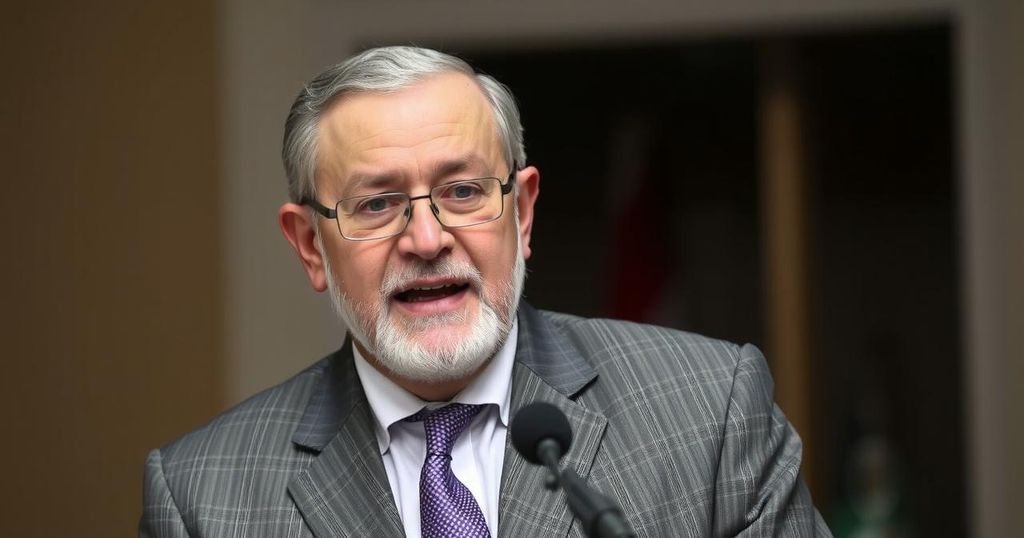Syria’s Potential Election Timeline Extends to Four Years, Says De Facto Leader

Syria’s de facto leader, Ahmad al-Sharaa, indicated that elections may be delayed for up to four years. The interim government aims to draft a new constitution and establish essential infrastructure. Moreover, al-Sharaa is working to gain international legitimacy after toppling Assad and engaging in diplomatic discussions with nations, including Ukraine and the U.S. He also emphasized HTS’s planned dissolution and the need for strategic regional collaborations.
The timeline for elections in Syria may extend up to four years, as announced by the country’s de facto leader Ahmad al-Sharaa after the recent overthrow of the Assad regime. Al-Sharaa indicated that significant preparations, including the establishment of necessary infrastructure, are essential prior to the electoral process. Furthermore, the interim government intends to draft a new constitution, a task projected to take approximately three years. Al-Sharaa emphasized that rebuilding the war-torn nation calls for more than mere governance; it requires a foundational restructuring. As part of this process, he revealed plans for the eventual dissolution of Hayat Tahrir Al-Sham (HTS) and the convening of a National Dialogue Conference, though a date has yet to be announced. Moreover, he expressed a desire for continued collaboration with Russia, while also indicating a need for a reconsideration of Iran’s role in the region.
In an international context, a Ukrainian delegation recently met with al-Sharaa in Damascus, signaling an evolving diplomatic landscape. The interim foreign minister of Syria noted shared experiences between the Syrian and Ukrainian peoples. Al-Sharaa was previously under a U.S. bounty due to his ties with jihadist factions, but his recent discussions with U.S. officials suggest a shift towards gaining international legitimacy. The de facto leader is strategically modifying his public persona as he endeavors to distance himself from his past, indicating a more diplomatic approach in international relations. This includes fostering better relations with Saudi Arabia and encouraging regional powers like Iran to adjust their regional strategies.
The context of these developments is rooted in Syria’s protracted conflict, which culminated recently in the overthrow of Bashar al-Assad, after decades of authoritarian rule. Ahmad al-Sharaa’s ascension represents a pivotal change in governance and offers the opportunity for rebuilding a nation devastated by civil war. The interim government is now tasked with critical responsibilities, including establishing a functional infrastructure, drafting a new constitution, and navigating complex international relationships, particularly with former allies and adversaries in the region. Al-Sharaa’s leadership is pivotal as he seeks not only to stabilize Syria internally but also to gain recognition and legitimacy on the international stage.
In conclusion, the prospect of Syrian elections being postponed for up to four years reflects the extensive preparations needed for a stable political transition. Ahmad al-Sharaa’s leadership marks a critical juncture for Syria, as he emphasizes the need for fundamental reforms and seeks to reshape both domestic governance and international relations. His approach symbolizes a significant departure from previous regimes, aspiring for a more inclusive and legitimate government. As talks with various international delegations progress, Syria’s future hangs in a delicate balance, reliant on prudent diplomacy and effective reconstruction efforts.
Original Source: www.cnn.com







